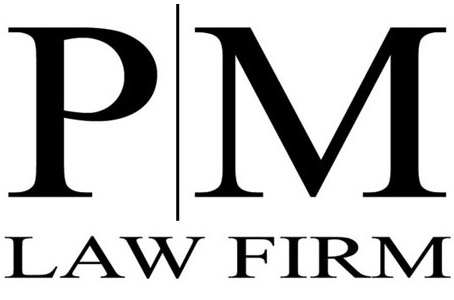People who are victims of a car injury are often in shock immediately after the incident. They don’t know what to do next. Unfortunately, a lack of decisive action now can compromise your compensation later on.
What follows is a clear and concise set of instructions to commit to memory. If you ever suffer an auto accident injury, you’ll know exactly what to do. You can summarize these steps in a notebook or a word document on your phone. If the worst ever happens, you’ll be ready.
Call 911
Even with minimal injuries or damages, always file a report with local law enforcement immediately. They will conduct an investigation and conclude which party was at fault. The police report containing this information is powerful proof of liability in court.
A police report declaring fault prevents haggling between the parties. Don’t trust a driver who admits guilt and wants to cover your costs off the record. If that driver changes their story later on, you’ll have no evidence to substantiate a claim.
Always get a comprehensive report from law enforcement declaring fault. It will protect your interests and prevent the guilty driver from taking advantage of the situation.
Get Contact Information From Witnesses
People who witness the accident may not remain on the scene until law enforcement arrives. If you are able, you should get their contact information straightaway after calling 911.
Witness testimony helps police determine fault. Without third-party collaboration, it’s just your story versus the other driver’s story.
Police reports may contain insufficient contact information. The report might list witness names, for example, without including phone numbers and addresses. It’s essential to have correct contact information. If your case goes to court, eye-witness testimony can make or break your claim.
Seek Medical Attention
If you think or even suspect that you have experienced a car injury, go directly to the nearest medical facility or emergency room at once. Never assume that any pain or discomfort will disappear by itself in a few days. Delaying treatment can make some injuries even worse.
What’s more, the other driver’s insurance company will use this information against you. They can claim that if you had been hurt, you would have gotten medical attention sooner. They can also say that because you waited so long to see a doctor, the pain must be due to something other than the car injury.
Another insurance company strategy is to claim that you’re not injured if you don’t take an ambulance to the hospital after a car injury. The other driver’s insurance company may argue that the only reason you finally sought treatment was that your attorney advised it.
Insurance companies routinely use these strategies to discredit claims, and they are highly effective defenses. As you can see, any delay in getting medical attention will put your car injury claim on shaky ground.
Document All Injuries
Tell your medical care professionals about all your injuries, including those that seem minor or inconsequential. Everything you say will be documented in your medical record. The other driver’s insurance company will later use that information to assess the validity of your car injury case.
Be thorough. If you later claim an injury that’s not reflected in your original medical assessment, the other insurance company will claim that the injury is new and must have resulted from something that happened after the accident.
Traumatic damages like those sustained in a vehicle injury may seem unimportant at first. However, they can get worse over time. If you have injuries that don’t seem worth mentioning, report them anyway, to be sure. That way, if they turn out to be serious, you’ll be covered for the damages later on.
Ensure that the information you provide for your medical record preserves your right to receive compensation for any injuries, whether significant or not.
Undergo Diagnostic Testing
Ask your medical provider to conduct all pertinent scans, diagnostic tests, MRIs, and exams, as well as X-rays. Finding and documenting auto accident injuries is essential for your health and necessary to prove your case. If your doctor hesitates to perform all appropriate tests, insist that these tests be conducted anyway.
The sooner your injuries are diagnosed and documented after a vehicle injury, the easier it will be to prove that these injuries are a direct result of the accident. The point of all this documentation is to restrict the insurance companies from claiming that your injuries were due to something other than the accident.
Get all relevant testing performed during your initial visit to the emergency room if at all possible.
Don’t Give Statements to Insurance Companies.
Refrain from providing insurance companies with any sort of statement after a car injury. This cautionary measure holds for the other driver’s insurance company as well as your own. The inconvenient truth is that even your own insurance company doesn’t necessarily have your best interests at heart.
For example, if the driver who caused the accident was uninsured or underinsured, that driver won’t be able to compensate you for your injuries. Should that be the case, you’ll have to petition your own insurance company for relief under your uninsured or underinsured motorist policies.
At that point, your insurance company is no longer your friend. In their eyes, you have become just another claimant. They will pressure you to accept the lowest possible settlement while you are seeking the highest possible settlement.
Insurance companies are more concerned with maximizing shareholder profits than they are with your financial and physical well-being. They charge the highest premiums the market will bear and negotiate the lowest payouts they can get away with. That’s how they make enough money to satisfy the financial needs of the company shareholders.
All insurance companies attempt to contact motorists who are involved in a vehicle injury shortly after the incident. Their objective is to get a statement from you about what happened for the official record. They want to secure your statement before you have a chance to collect your wits or consult an attorney.
Why are the insurance companies so anxious to get your statement? They hope you will say something they can use against you when you seek compensation for your injuries. Therefore, you should not give any statements to any insurance companies for any reason whatsoever.
Say nothing about how the accident occurred, and don’t discuss the extent of your injuries. Confirm that an accident has taken place. Tell the caller that you won’t be making a statement until you’ve consulted your attorney.
Find an Experienced Car Injury Lawyer
Now that you know how the insurance industry operates, it’s easy to understand why getting legal representation for a vehicle injury is a good idea. An experienced personal injury lawyer wants to maximize your compensation as much as you do. The more you get, the more your lawyer gets. It’s a win-win situation.
Your attorney will guide you through every step of the claim settlement process. Pursuing an injury claim isn’t just a one-shot deal. It involves various filings, court appearances, eye-witness testimonies, and other important components:
- Filing a property damage claim
- Securing a rental car
- Repairing or replacing your damaged vehicle
- Ensuring that you receive proper medical treatment
- Maximizing compensation for your injuries
- Filing a compensation lawsuit
- Negotiating with the guilty driver’s insurance company
- Negotiating and reducing medical liens
A recent study conducted by the Insurance Research Council reported this: Victims of auto injuries with legal representation receive three and one-half times more compensation than injured individuals defending themselves.
Retaining experienced counsel will cost you more than going it alone. However, your total settlement will almost always be higher. Most personal injury lawyers work on a contingency basis and offer free consultations to determine the merit of your case. If you’ve been hurt, you have nothing to lose by calling.
Document Your Car Injury Experience
Get a notebook and record all the details of the vehicle injury. Include doctor appointments, medical treatments, personal experiences, discomfort, and pain caused by the injury, prescription and OTC medications you’re taking, out-of-pocket expenses, copays, deductibles, and everything else you consider essential.
Pay special attention to symptoms and pain generated by the vehicle injury. When are the pain and discomfort most intense? Are you able to work? If not, when did you stop and why?
If your case goes to court, you might wait two or three years before facing the judge. It’s easy to forget the details of an auto injury over time, especially if you’re in pain. Recording the information now saves you from trying to remember it a year or two down the road.
When you document everything, the important details will always be at your fingertips, whether you remember them or not. Here are some things to take note of on the day of the accident:
- Traffic conditions
- Weather conditions
- Where you were headed
- What your plans were that day
- How the accident happened
- What was said in conversations with others on the scene
Document your pain levels and describe the effects of the pain both initially and later on. Has your life changed as a result of the injury? If so, how? Has the injury limited your ability to function? If so, in what way and how much? Did you have to ask others for help? How did that make you feel?
Your lawyer needs this information to build and substantiate your injury claim. Insurance companies require this information along with medical records to determine how much compensation they are willing to offer. Your input helps your attorney to build the strongest possible case on your behalf.
Missed time from work and money spent on healthcare treatments are recoverable as long as you provide sufficient proof of claim. The more evidence you compile, the better.
Complete All Treatments and Keep All Medical Appointments
Don’t miss doctor appointments or physical therapy sessions. These actions are time-consuming and unpleasant. Nevertheless, they will show the insurance company that you treat your injury responsibly and medically prescribed.
Physical therapy is often the key to healing from an auto injury. It can restore you to optimal health. Disregarding doctor appointments and skipping therapy sessions will be seen by the insurance company as evidence that you were not hurting enough to undergo treatment.
Insurance companies will also claim, and rightly so, that you did nothing to mitigate your damages. They may argue that your negligence is what caused your injuries to escalate. You might have to cover the cost of permanent side effects yourself.
The amount of compensation the insurance company offers will now be significantly reduced. If you want to maximize your compensation, always follow through with medical treatments and doctor appointments. It can make or break your claim.
Post Car Injury Procedure
The wheels of justice turn slowly, especially when it involves insurance companies. In most cases, you must first complete all prescribed medical treatments and recover from all your injuries before receiving compensation.
Healing 100 percent of your accident injuries may be impossible. In that case, you’ll be compensated after reaching a point that your doctors consider the best that can be expected. It may take months or even years for this determination to be made and the entire process to play out.
If a settlement cannot be reached out of court, a lawsuit will extend the waiting for compensation even more. The case’s complexity, the court schedule, the availability of witnesses, and other variables all combine to determine how long the entire process takes.

